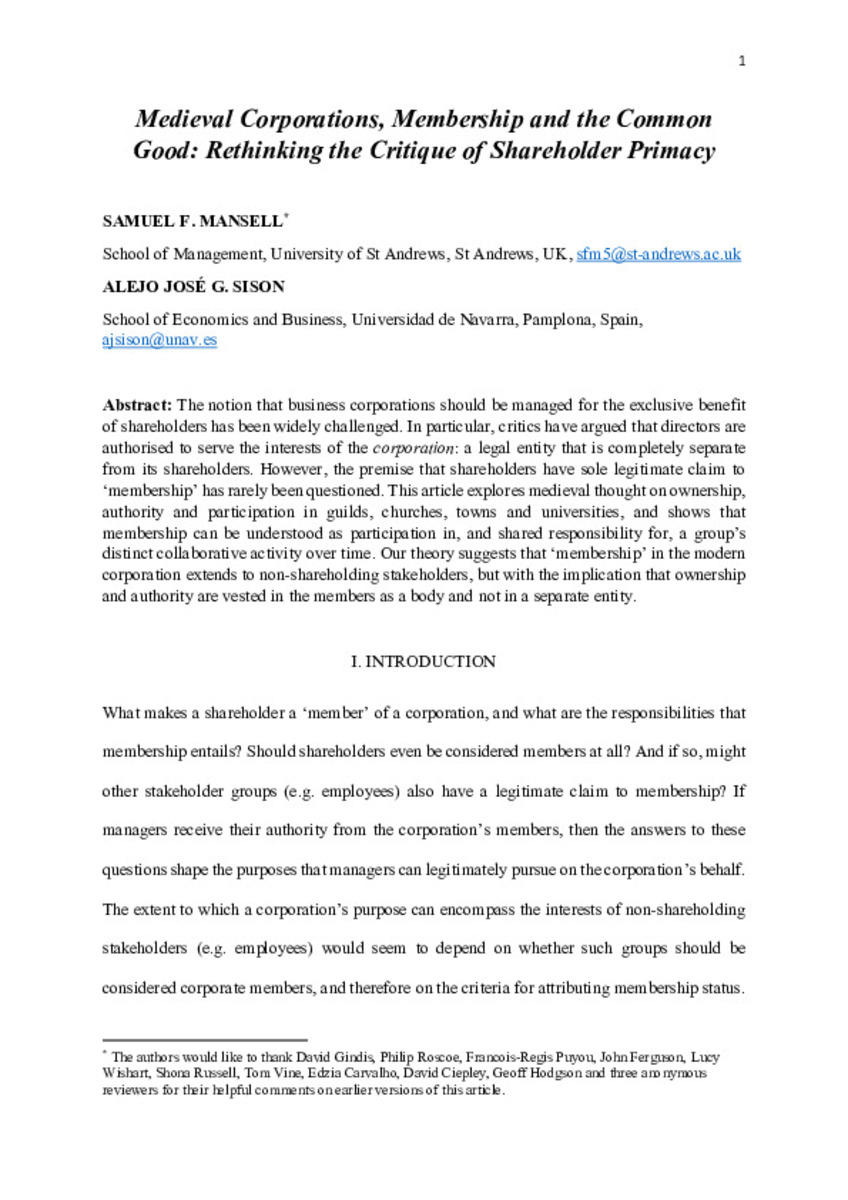Medieval corporations, membership and the common good : rethinking the critique of shareholder primacy
Keywords:
Membership
Shareholder
Medieval Corporations
Common Good
Citation:
Mansell , S F & Sison , A J G 2020 , ' Medieval corporations, membership and the common good : rethinking the critique of shareholder primacy ' , Journal of Institutional Economics , vol. 16 , no. 5 , pp. 579-595 . https://doi.org/10.1017/S1744137419000146
Statistics and impact
0 citas en

0 citas en

Items in Dadun are protected by copyright, with all rights reserved, unless otherwise indicated.








